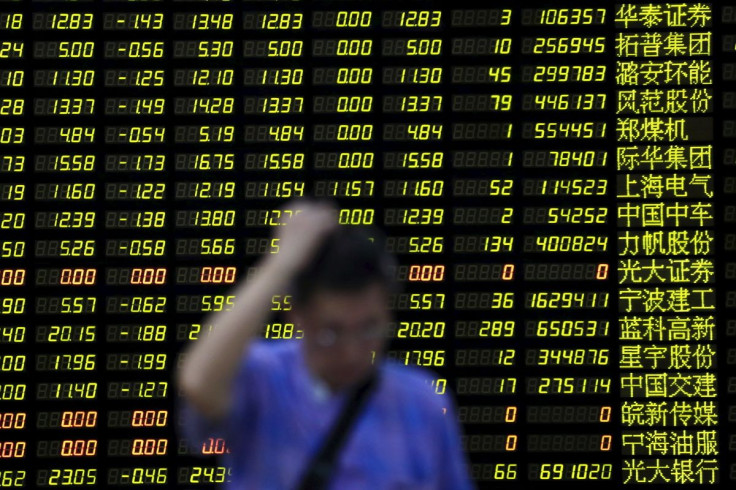European Shares Rebound, China Rate Move Helps Sentiment

Shares rebounded on Friday after China cut a key lending benchmark to support its economy, though a global equities gauge remained set for its longest weekly losing streak on record amid investor worries about slowing growth and high inflation.
China cut its five-year loan prime rate (LPR) - which influences the pricing of mortgages - by 15 basis points on Friday morning, a sharper reduction than expected, as authorities seek to cushion the impact of an economic slowdown. It left the one-year LPR unchanged.
At 1053 GMT, the pan-European STOXX 600 was up 1.6% and set for its first daily gain in three.
The MSCI world equity index, which tracks shares in 50 countries, rose 0.5% but for the week was still shedding 1% and on track for its seventh consecutive weekly decline, its longest losing streak since its inception in 2001. It would also be the longest including back-tested data extending to January 1988.
U.S. stock futures indicated that Wall Street would follow suit, with S&P 500 e-minis up 1.1%, Dow futures up 0.9% and Nasdaq 100 futures higher by 1.4%.
"Investors are obviously looking to do a bit of bargain-hunting, because some stocks look pretty cheap at the moment," said Nathan Sweeney, Deputy CIO of multi-asset at investment manager Marlborough.
China's LPR cut "shows you not all central banks are trying to create an environment where the market sells off," he added.
Euro zone bond yields were higher after two days of hefty falls as risk sentiment improved following China's rate cut.
Germany's 10-year government bond yield was up 5 basis points (bps) at 0.989%, still below last week's eight-year high of 1.189%.
Money markets are now pricing in 38 basis points of tightening from the European Central Bank by its July meeting. This suggests a 25 bps hike is fully priced in, and markets attach a roughly 52% probability of an additional 25 bps move.
"A July lift-off seems almost a done deal, as does a September move to zero deposit rates," said analysts at Bank of America Global Research in a research note.
"Our conviction in four interest rate hikes in total this year is growing, and chances are that the noise moves more in the direction of 50bp hikes than the 25bp we continue to expect."
The U.S. 10-year yield was at 2.864%, up one basis point from Thursday's close, and down from a top of 2.873% earlier on Friday. The two-year yield climbed two bps to 2.631% compared with a U.S. close of 2.611%.
In currency markets, moves were relatively muted with the dollar little changed but still headed for its worst week since early February, after a 10%, 14-week surge.
The dollar index, which measures the currency against six major rivals, was off 0.1% at 102.84.
Gold prices were firmer and were set for their first weekly gain since mid-April as the dollar retreated. Spot gold was up 0.2% at $1,846 an ounce, having risen 1.4% to its highest level in a week on Thursday.
Oil prices were mixed as investors juggled a weakening global economic growth outlook and tighter central bank monetary policy with the planned European ban on Russian oil.
Brent futures for July rose 27 cents, or 0.24%, to $112.30 a barrel, while U.S. West Texas Intermediate (WTI) crude for June fell 19 cents, or 0.17%, to $112.02 on its last day as the front-month.
The more actively traded WTI contract for July was up 6 cents at $109.95 a barrel.
Bitcoin was flat at $30,301. Smaller rival Ether was up 1% at $2,037.
(Graphic- World stocks plunge $13 trillion in value:

)
© Copyright Thomson Reuters 2024. All rights reserved.





















